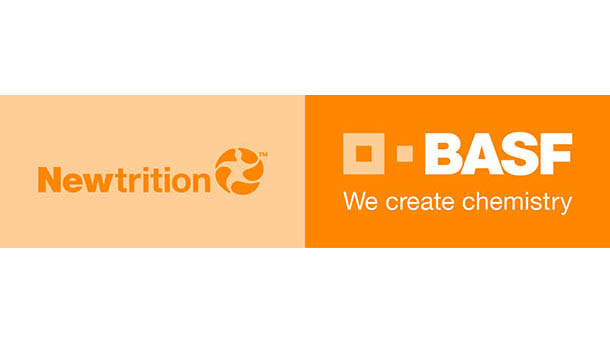Promotional Features
Personalized nutrition: The path from niche service to mass appeal
Personalized nutrition is an idea on the cusp of the mainstream. With healthcare systems seeking new strategies to stem the rise of lifestyle-related non-communicable diseases and consumers looking for science-led ways to improve wellbeing and longevity, the concept is benefiting from two powerful tailwinds. Yet, there is still work to do if personalized nutrition is to go mainstream and dispel doubts that it may be more hype than hard science.
The central idea behind personalized nutrition is well established and uncontroversial. For years, researchers have accrued a body of evidence of the harms caused by deficiencies in nutrients, even those that are only required in trace amounts. More recently, scientific advances have enabled researchers to identify interactions between the diet and the genome, transcriptome, proteome and metabolome of individuals. As each person is unique on a molecular level, and nutrients interact with this personal biological fingerprint, it follows that the ideal diet will vary from person to person.
Population-scale nutrition campaigns have addressed, to lesser and greater degrees of success, some common nutrient deficiencies. However, such broad brushstroke methods cannot fix deficiencies in all nutrients and micronutrients in all individuals. As genomics, proteomics and metabolomics tools have made clear, there is far too much person-to-person variation in genetics and biochemistry for a one-size-fits all approach to diet to give people the intake of nutrients they need to live longer, healthier and more active lives. Such benefits are realized by looking at characteristics of each individual and responding accordingly.
“When you start looking at nutrient levels, coenzyme Q10 levels, fatty acids, you really get a clearer picture of what's going on in a person’s body,” Jack Challem, a health writer who has tracked the science and business of nutrition for decades, said. “That way, a doctor can make a sound diagnosis and come up with a sound treatment plan. Really, personalized treatment is the only rational approach.”
Challem’s claim is backed up by large-scale studies. Writing in the International Journal of Epidemiology in August 2016, researchers described the outcome of a European Union-funded experiment to assess whether personalized nutrition programs based on either diet, phenotype or genotype led to better outcomes than conventional dietary advice. The six-month, 1,269-person study found subjects in each of the personalized nutrition arms “made larger and more appropriate changes in dietary behaviour” than participants who received conventional advice.
An emerging ecosystem of services
The study showed the potential for governments to address the rise of non-communicable diseases such as diabetes, cardiovascular conditions and cancer through the use of personalized nutrition. Yet, while most healthcare systems are desperate for ways to stop rising incidence of these conditions from causing costs to spiral, population-scale nutrition campaigns remain wedded to the old way of working. It remains to be seen when, if ever, healthcare systems will start personalizing nutrition advice to physical characteristics, blood biomarkers and diet-responsive genetic variants.
In the meantime, the private sector is providing personalized nutrition and nutrigenomics services to customers. Some services, such as the bodykey genetic testing kit offered by multi-level marketing giant Amway under their Nutrilite nutrition brand, are aimed at people who are trying to lose weight. Others, such as nutrigenomics company DNAFit, are designed to help athletes improve their performance. Both of these services craft diet and exercise plans tailored to the DNA of each user, but, while DNAFit has a ‘wellbeing’ unit, they are mainly focused on subpopulations.
If personalized nutrition is to meet the expectations of its advocates — Challem says the potential impact on human health is “huge” — it will need to break out beyond these niche groups. Given that many countries have failed to tackle well-established, mass nutritional problems such as vitamin D deficiencies and obesity is on the rise around the world, there are reasons to doubt whether personalized approaches can garner mass appeal in the near term. Yet, those working in the field see another powerful trend running counter to the drift toward poor nutritional practices.
“There is a very large movement, a global movement, that shows us that consumers are interested in using food as their drug of choice and in working on preventive health measures for themselves,” Rony Sellam, CEO of personalized health analytics company Segterra, said. “More and more people understand the absence of disease does not mean they're healthy. They believe they can do better than just not being sick.”
A growing group of companies are trying to help these people meet their health goals. Amway, DNAFit and Segterra are joined in the sector by metabolism tracker Kenkodo, micronutrient testing pioneer SpectraCell Laboratories and the self-explanatory Nutrigenomix. Each of these companies, and an expanding pool of competitors, are working to ensure their customers understand their personal nutritional requirements.
Segterra bases its nutritional recommendations on blood biomarkers. “Blood doesn't lie,” Sellam said. “For many biomarkers, we have many decades of experience around what they are, where they need to be, and there's great scientific evidence around them. Foods, supplementation, exercise and lifestyle changes are very powerful interventions for having an impact on those biomarker levels.”
The InsideTracker product from Segterra differs from some of its competitors in that it is not aimed at a subpopulation. Rather, the service looks at 30 wellness, fitness, longevity and physical performance biomarkers that can be influenced by lifestyle, plus an individual’s current diet and behavior, with a view to helping anyone optimize their health. The process of turning data into recommendations is handled by algorithms Segterra worked on for four years before introducing its product. The use of algorithms means Segterra can offer personalized recommendations at scale.
Aligning interests to advance the agenda
Part of what Segterra does is encourage people to eat a broader, different range of foods — Sellam thinks people typically consume between 20 and 50 food items per week — and add in supplements for nutrients and micronutrients as needed. Micronutrients are key to real health improvements, as opposed to the sort of performance enhancements seen in athlete-focused personalized nutrition plans.
Then, Segterra sends reminders to encourage people to stick to their diet and supplement plan, and users measure their progress to see if the lifestyle changes are having the desired effect. These ongoing measurements are central to how InsideTracker works.
“If you take food that's full of B12 or you look at the food label and there's a lot of iron in something that you're eating, it doesn't necessarily mean that your body is processing it,” Sellam said. “Unless you have an unbiased and objective way to measure what's going on inside, you don't really know if it's working.”
The fact that increasing intake of a micronutrient such as B12 or iron through dietary changes or supplementation may not lead to corresponding changes in blood biomarkers hints at the level of complexity facing the field of personalized nutrition. Factors including the human microbiome and genetics can influence the processing of nutrients, suggesting a broad, deep range of expertise will be needed to consistently, effectively apply personalized nutrition.
“I think the role of genetics and epigenetics will increase. People who have a genetic variation in how they metabolize folate, as one example, might be asked to consume more in the way of leafy greens because they're very high in folate,” Challem said. “That by itself is not enough to overcome the genetic issues, so they would need folate supplements.”
As such, there is reason to believe players with expertise in different areas will need to align their interests if personalized nutrition is to gain true mass appeal. Genetic testing and blood biomarkers will play a big role, as will analyses of the microbiome. Effective algorithms will be needed to scale the service and crunch big data. Tracking devices will play a major part in monitoring ongoing performance. Manufacturers of nutritional products will be essential to ensure people get the molecules they need. And scientific advice will be required to guide each step in the process.
The future of personalized nutrition
Today, the personalized nutrition sector is more fragmented than this vision of the future. The upshot is while various services are doing some good for some people, the full, population-scale benefits of personalized nutrition are yet to be realized. Scientific advances will go some way to addressing the gap between the potential and reality of personalized nutrition by persuading more and more people the idea is more than just hype. Yet, doing so will likely increase our understanding of the complexity of the body, reconfirming the need for an aligned ecosystem of personalized nutrition players.
Many of the individual components that will make up such an aligned ecosystem are already in place. The science of nutritional products is advancing in parallel to the rise of activity trackers, diagnostics, analytics and other technologies. With these components in place and interest in wellbeing and longevity on the rise, it is possible personalized nutrition is an idea whose time has come.
“We are in an era where people are now used to quantifying themselves using activity trackers, for example, and extracting data from their bodies that can tell a story,” Sellam said. “The next big story that has already started being told is, ‘what is my body telling me?’”

